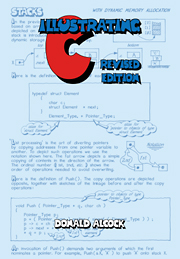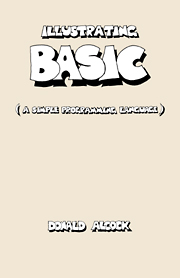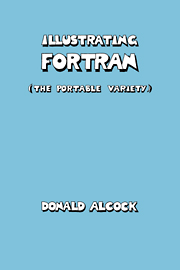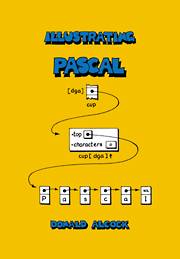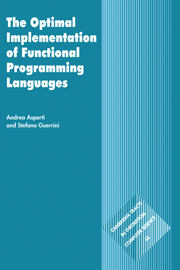Illustrating C
Using his unique formula--original and readable prose combined with graphics and calligraphy--Donald Alcock revolutionizes the teaching of the C programming language. A special feature of the layout of the book is the double-page spread: each one covers a particular topic making the book useful as a reference manual. This revised edition has benefited from many corrections and updates, and has now been printed in a wide-page format for ease of use.
This book is an excellent introduction to standard (ANSI) C, and will provide a reference manual for beginning programmers, computer enthusiasts, and students.
- Established Press author (Basic sold over 170,000 copies)
- Alcock's style of handwritten book is a big success
- Review in Computer Journal of Pascal expressed the wish that he would tackle C at some time
- 'Completes the set' of fundamental computer languages
- C is gaining ground on FORTRAN as the leading language for students
Reviews & endorsements
"...a useful reference book...The book covers not only the basic elements of C but C libraries; algorithms (such as bubble sort, quicksort, and shortest route); and essential programming techniques such as symbol state tables, binary trees, linked lists, manipulation of strings, and parsing of algebraic expressions." M. J. Iordache, Computing Reviews
Product details
July 1994Paperback
9780521468213
228 pages
248 × 183 × 20 mm
0.442kg
Available
Table of Contents
- Preface
- 1. Introduction
- 2. Concepts
- 3. Components
- 4. Control
- 5. Organization
- 6. Pointers, arrays, strings
- 7. Input, output
- 8. Structures, unions
- 9. Dynamic storage
- 10. Library
- 11. Summaries
- Bibliography
- Index.

